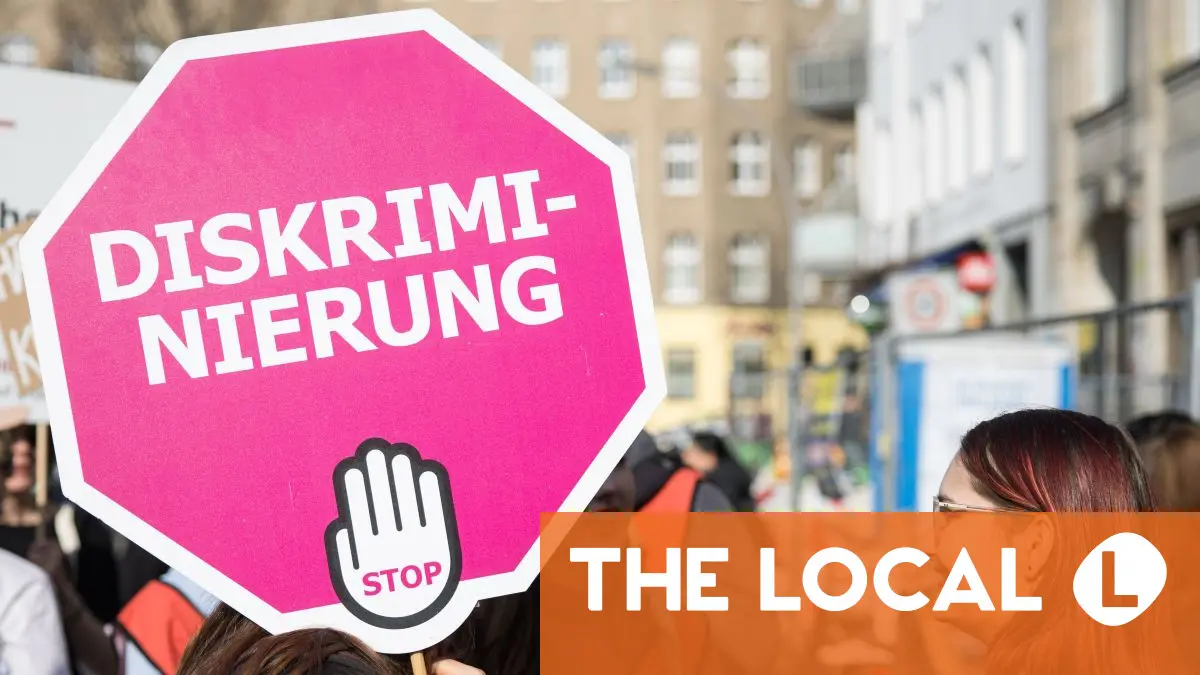Germany’s Anti-Discrimination Agency published it’s latest annual report on Tuesday, and the results made for grim reading.
In 2024, the agency received 11,405 complaints about discrimination — the highest number ever recorded, and a six percent rise compared to previous year.
In 2019, the year before the Covid pandemic, the number of complaints received was 4,247.
At 43 percent, the highest number of complaints were about racist discrimination, followed by discrimination based on disability (27 percent) and gender (24 percent).
Announcing the publication of the report, Ferda Ataman, the Independent Federal Commissioner for Anti-Discrimination, drew a clear line between the rise in the number of cases and the creeping normalisation of racist and discriminatory discourse.
“Discrimination is a growing problem in Germany,” warned the commissioner. “With the rising number of votes for a party of the extreme right, it seems that more and more people feel encouraged to make racist comments in public.”
Ataman added that the true number of cases – rather than the number of cases reported – is likely to be far higher, because “most of those affected keep discrimination to themselves.”
German protections are ‘the weakest in Europe’
According to Ataman, Germany’s General Equal Treatment Act (AGG) is “one of the weakest anti-discrimination laws in Europe.”
Discrimination on the basis of nationality, for example, is not protected directly under Germany’s General Equal Treatment Act (AGG). However, it can be considered indirect racial discrimination in some cases.
Advertisement
In 2024, around 2,350 complaints about discrimination involved incidents that were not covered by the current law.
READ ALSO: Levels of racism and discrimination in Germany revealed in new survey
Room for improvement
The report identifies three areas for immediate action, including an urgent need for nationality to be included in the AGG as a ground for discrimination — noting that the present loophole may have the unintended effect of encouraging anti-Semitic and anti-Roma discrimination.
The commissioners also want to see the AGG extended to apply to government agencies. Currently, the authors suggest, citizens are inadequately protected against discrimination in government offices, in interactions with the police, in court, and in public schools and universities. In 2024, 25 percent of complaints received by the Anti-Discrimination Agency were connected with government agencies.
Passers-by walk across a street in Munich’s Haidhausen district in the early hours of the morning. Photo: picture alliance/dpa | Peter Kneffel
Finally, the commissioners are calling for greater accessibility and protection against digital discrimination, amid concerns that AI systems and algorithms can disadvantage older people and people with disabilities.
Discrimination at work and in everyday life
One in three complaints received by the Anti-Discrimination Agency is related to incidents that occur during job searches, job interviews, at work, or when leaving employment.
The report focusses particularly on experiences of workplace discrimination based on gender and suggests that women are frequently affected by poor pay, lack of career opportunities, and sexual harassment.
“Gender-based discrimination is still deeply rooted in our society—and it is on the rise again,” said Commissioner Ataman.
The report also makes clear that acts of discrimination can take place anywhere, at any time. Twenty-two percent of cases reported involved everyday activities such as flat hunting, visiting restaurants, or shopping, for example.
Advertisement
In one instance, described by Commissioner Ataman, a Muslim woman in Nuremberg was turned away from a doctor’s practice with the words, “We don’t want people like you here.”
In another case, a Mahmoud Z. applied for an apartment under the name Stefan H. According to the report, Mahmoud had already been turned down for more than 20 apartments, often without even being invited to a viewing.
Mahmoud conducted his “test” on the advice of the Anti-Discrimination Agency, to see whether his name was a contributory factor in his lack of success. Sure enough, “Stefan” was invited to view an apartment that “Mahmoud” had been told was no longer available.
If there is a silver-lining to be found, it’s that the apparent year-on-year rise in discrimination complaints may reflect an increase in the number of people who are aware of their rights, and have the courage to try and enforce them.
If you have experienced discrimination in Germany, the Federal Anti-Discrimination Agency provides free, confidential counselling in a variety of languages.
READ ALSO: What to do if you experience racism in Germany





































